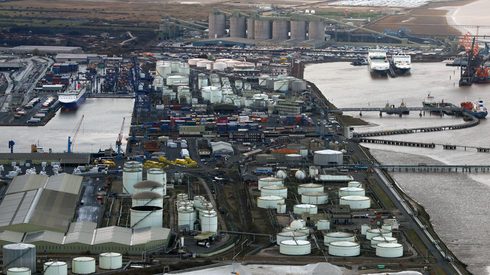The compliance ticket market in the UK’s Renewable Transport Fuels Obligation (RTFO) is set to remain volatile into the new year, with market sources pointing to key drivers including demand uncertainty linked to the COVID-19 pandemic and increasing obligations that take effect at the start of 2022.
With 2021 deemed “busy” by traders in terms of both policy developments and market volatility, traders say 2022 will begin with uncertain demand stemming from the spread and effect of the extremely contagious Omicron variant of COVID-19.
Fuel demand in the New Year is likely to be highly dependent on Omicron’s impact on healthcare systems – and potential pressure for new lockdowns and big falls in the volume of commuter and leisure-related journeys.
But a clear picture of these impacts isn’t thought likely to emerge for another few weeks as scientists assess the net effect of the most contagious form of the virus so far.
Possible outcomes include a lowering in fuel/biofuel demand in the UK and a subsequent decrease in compliance ticket (RTFC) prices, which could outweigh the impact of the higher blending mandate that will take effect from January 1.
Potential variant-induced lockdowns, one trader said, could drive players to buy large volumes of fuel/biofuel to take advantage of cheaper prices “and no one will want to buy tickets if they’re long (on fuel).”
Another trader said that high levels of uncertainty about fuel demand will be reflected in the difficulty in assessing how many RTFCs will be needed.
In 2022, the current 9.6% volumetric blending target, which applies in the UK for waste-based and crop-based fuels will rise by 1.5%, with an additional increase in the mandate by 3.5% spread over the period 2023 to 2032.
“Next year the obligation increases, and we are still working with B7 and E10 so we have got a limitation on the amount of physical biofuel we can use,” the first trader said, adding that as a result the ticket market will “tend to be tighter.”
Furthermore, the rise of “novel fuels” like compressed gas, bio-gas and bio-methanol will create variability in the marketplace.
Meanwhile, in terms of pricing, with levels surpassing the 41p/litre mark in 2021, a 37% rise from the start of the year, traders are wary of potential upside pressures that would push ticket prices towards the 50p/litre level, at which an RTFO buyout would occur.
One trader told Fastmarkets EnergyCensus the market would have to “wait and see.”
Besides UK-specific fundamentals for RTFCs, the credits will of course take their cue from underlying biodiesel prices and ethanol prices next year, with both biofuels experiencing a highly volatile year in 2021.
The paper forward curve for biodiesel based on used cooking oil (UCOME) shows a fairly narrow backwardation after January next year, with prices congregating around $1,220/mt for February, March and April, compared with around $1,270/mt for the first month of 2022.
The price only drops to $1,190/mt for June, a clear signal that traders think that market tightness will continue into the summer, despite raised expectations that a shortage of catalysts in biodiesel production – which erupted as an issue in mid-2021 – has become less acute as producers have reportedly found some supplies elsewhere.
Bayer – one of the main producers of the catalysts – is expected to restore supply after a force majeure that will enable producers of rapeseed-based and biodiesel from used cooking oil to ramp up production to meet higher mandates in most European countries.
The expected restoration of catalyst supply could lower prices for RME considerably, with the March contract over $200/mt cheaper compared with levels in January 2021.
However, that commodity is also expected to cool off for another reason – as expected improvement in supplies of rapeseed inbound from Australia will lower prices for feedstocks.
This article was originally published to Fastmarkets EnergyCensus on Friday December 24, 2021.






